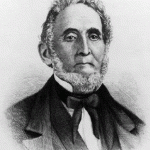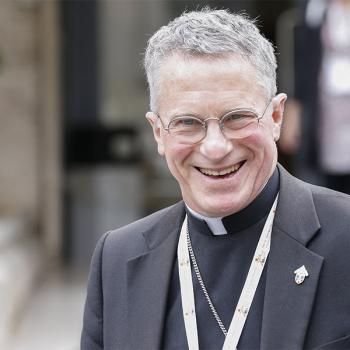Here is my Friend, freed of the insulting suggestion that divine love would willingly allow senseless suffering. Free, also, of supernatural hocus-pocus, here is a genuine Friend who does everything divine power can do to defeat the world's pain and suffering. We know that in everything God works for good with those who love him (Rom. 8:28). This is a vision of God that liberal Christians should appreciate.
It amazes me that so many traditional theologians and laypeople think that the God of process theism does not matter. If God does not know the future with certainty, they say, then God is not worshipful. If God is not able to control the world, they say, then God is not important. Both of these objections focus on issues of power. If God has perfect unilateral power -- perfect ability to affect without being affected -- then God cannot be affected by time. Either God has no knowledge of time, as Aristotle thought, or it is necessary subtly to deny the ultimate reality of time so that God's knowledge is timelessly complete. It all boils down to this: if God is not perfectly powerful in the way we want, if God cannot infallibly see and guarantee the happy outcome we want, then God is unimportant. At least, they say, such a God is not the God of the Christian faith. I wonder how this position squares with Jesus and the cross. "We preach Christ crucified, the wisdom and power of God. "
Our Father who art in heaven..." What are good parents like? As children we suppose that our parents know all, see all, and control all. Gradually we learn that they do not. To the extent that they are beneficent and loving parents, of course they do all they can to make life good for us and to teach us to be caring and giving people. And it is finally for loving us that we love them, not for the power that we thought they had.
Imagine that two physicians are caring for a sick child. One has the power to cure the child at the snap of a finger but chooses not to for some "mysterious" reason. The other lacks this power but does everything she can to help the child -- nursing, cooling covering, feeding, holding, loving. We may send our pleas to the first doctor, but when my child dies, you know how I feel. The second doctor is the one I embrace as I cry, and love with the love of shared suffering. I know which one cares for my child.
Power may evoke my fear and awe, but not my worship or love. Unilateral power cannot transform me into a more sensitive or caring person, but love can. Twelve legions of angels could not save one soul, but a crucified love could. When I teach Plato, I try to help my students feel the awe, mystery, and attraction of timeless, unchangeable Being. But I do not understand what that Being has to do with a person hanging on a cross, with a Friend who loves me when I am unlovable, with a grace that pours love into my heart until I become more loving.
I said earlier that my Friend's love called me to love honesty as well as people. And it is through process theology that I see how to connect God's love with human integrity. To make this clear I must return to the experience of my Friend's love and to the problem of the world's ambiguity.
As a young man I took God's existence for granted, seeing the divine hand in the grandeur of the stars and the beauty of the flowers. And most important, I felt God's love pour into my heart. But a loving friendship involves openness, honesty, and trust; so part of what came from those experiences was a deep conviction that God approved of my strongest challenges. I could never imagine feeling condemned for being honest in my search, wherever that search took me. Instead, my Friend's love said, "Come find me as I really am." Oddly, then, it was the very experience of God's love that enabled me to challenge my beliefs about God, and thus to confront the ambiguity of the world.
The world's ambiguity is a central theme of modern liberal consciousness, and the openness and tolerance required to confront it are central liberal values. It is essential to modern communities of inquiry that we respect each other as honest searchers, especially regarding such emotionally powerful questions as the existence and nature of God. Many of us think the world neither requires nor leaves room for a divine being. And yet my theistic friends are far too intelligent and insightful for me to dismiss theism lightly, as a dying remnant of the past. At the same time, honest theists today must recognize that many intelligent and insightful persons look at the world and do not see a divine hand. This situation poses a serious problem for classical theism, which process theology is well equipped to address. Why would a powerful and loving God create a world that hides God from the view of honest seekers?
The Apostle Paul stated very clearly that those who do not accept his gospel "are without excuse for what can be known about God is plain to them, because God has shown it to them" (Rom. 1:19). I once thought the same way. My experiences of God's love were very clear to me, and I simply assumed, as did most biblical writers, that God's love had been made abundantly clear in the miracles of the Exodus, the words of the prophets, the work of Christ. But more to the point, my Friend would make that love clear, just as would any good friend or parent. True love does not hide itself from the loved one, but reveals itself in every possible way.




